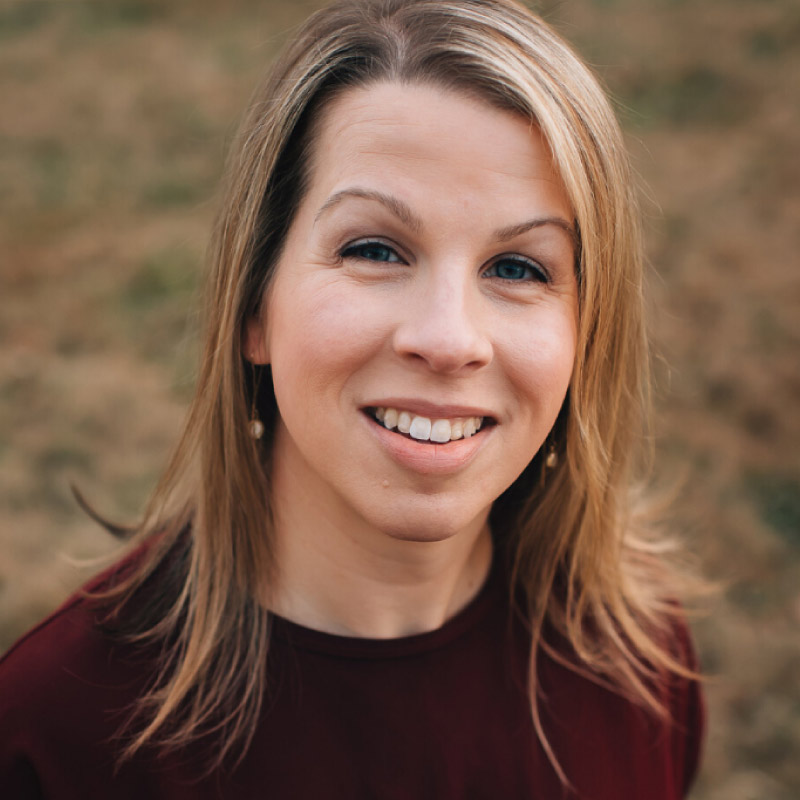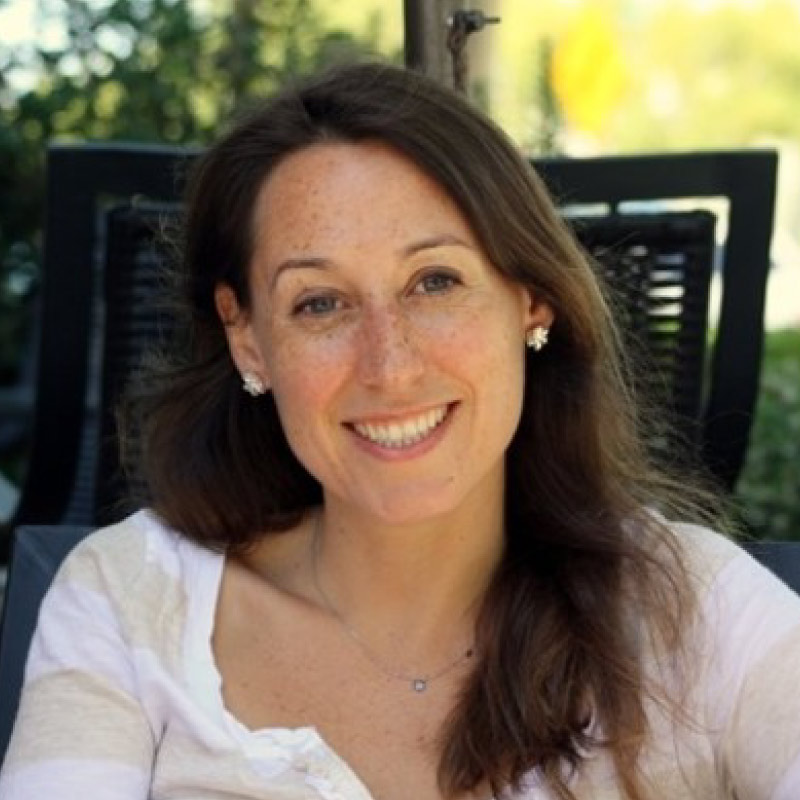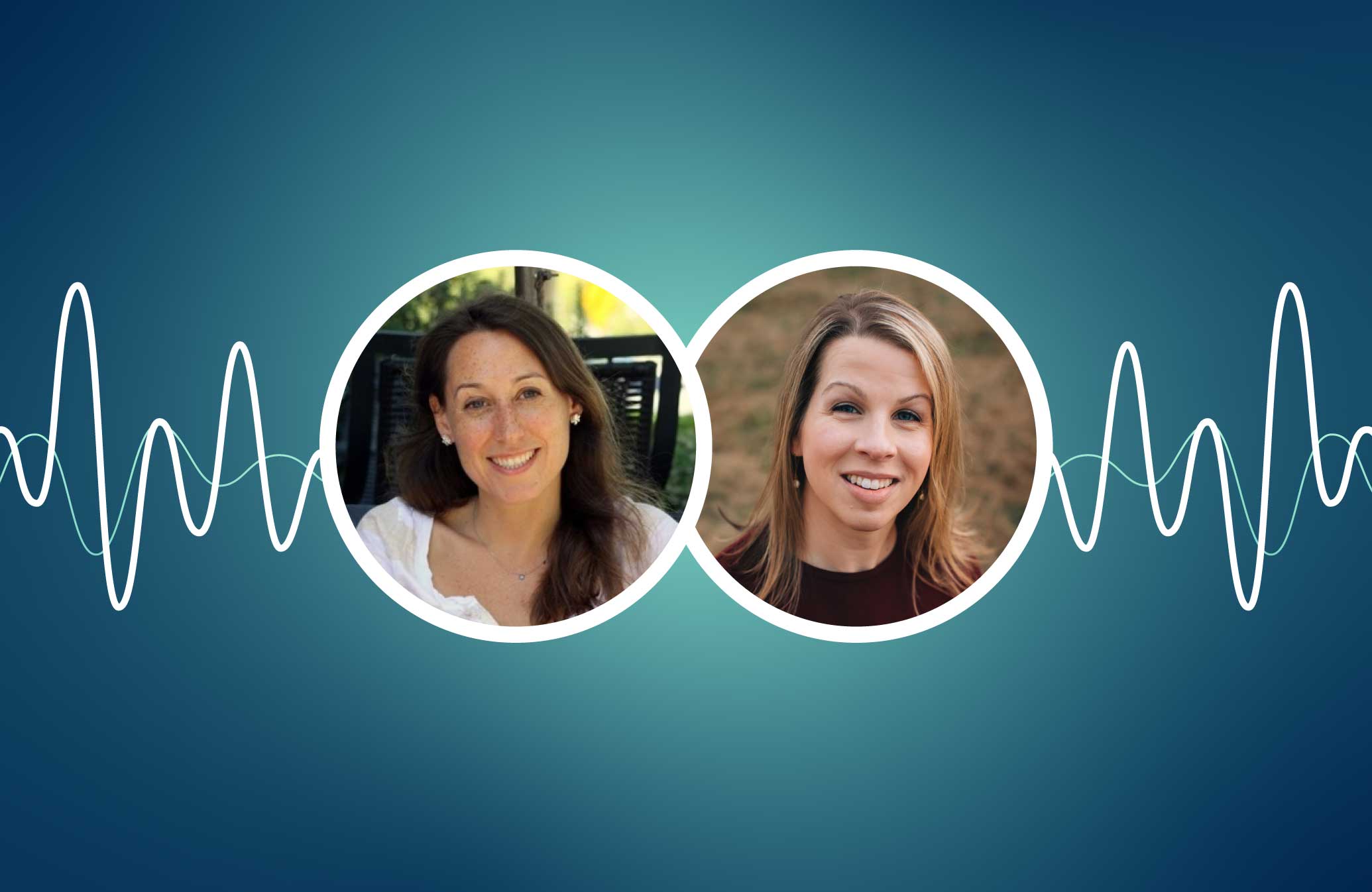Listen Now
Episode Transcript
Announcer [00:00:00] Welcome to RadioRev, podcasting from the heart of healthcare in Minneapolis, Minnesota. This is the podcast for change makers looking to do more than just health engagement. It’s about getting people to take action and do things that actually improve their health. It’s a radical idea, right? So we’re talking with the leaders, innovators, movers, and shakers who are bringing new ideas, inspiring others, and leading the way.
Jenn [00:00:25] In honor of Women’s Equality Day, Icario CEO Jeff Fritz is talking with Joy Rios and Robin Roberts from one of our favorite healthcare podcasts, HIT Like a Girl, about female leaders in health IT that are changing the game and inspiring others. Welcome to the show.
Jeff [00:00:39] Hey, guys. Really a pleasure to have you here. And I’d like to say, it’s not just celebrating Women’s Equality Day as a reason to have you on, but you are just great people, and I really enjoy seeing the work that you’re doing in healthcare, and the championing you’re doing around healthcare IT, and the fantastically strong women that you have on your show.
Joy [00:01:09] Well, thank you so much. It’s really a pleasure to be here with you.
Jeff [00:01:13] So we like to start our podcast with a little personal trivia. And you may have this off the top of your head or maybe you want to punt it to the other person first. But we’d love to know what your favorite ’80s song is. Maybe Joy, do you want to go first?
Joy [00:01:30] Yes. Is it possible to have a three-way tie? Because I feel as though the soundtrack to the movie “Dirty Dancing,” the whole soundtrack just really peppered my childhood. And so I’m thinking, if that is an answer, I like to have that. I’d also like to reserve Whitney Houston, “I Want to Dance with Somebody.” {music plays}
Jeff [00:02:02] So, do you have somebody who can lift you up over their head like in the movie?
Joy [00:02:06] Well, I have absolutely practiced it in a pool with my husband. Definitely. That was one of the more fun dates that we would go on would be swimming, and I’m like, “Get ready. I’m going to jump!”
Jeff [00:02:21] How about you, Robin?
Robin [00:02:22] Oh, I think I’ve got to go with Debbie Gibson, “Only in My Dreams.” I think I spent a great part of my ’80s living vicariously through my big sister, Holly, who had the firecracker bangs and tried to emulate her style at the mall on a pretty much daily basis. So Debbie Gibson would be my DJ request for ’80s music for sure. {music plays}
Jeff [00:02:50] I might have my sister’s old cassette tape of Debbie Gibson at home.
Robin [00:02:56] It might be worth something.
Jeff [00:02:58] Yeah, I’ll test it out on eBay. So I’d really love to hear from you. You have had a chance to talk to so many cool women in healthcare IT. Who do you see as somebody you would really admire?
Joy [00:03:18] My go-to answer…we have really been talking to some incredible ladies, so it is really hard to choose, because there are so many women out there doing pretty amazing things. But the person who’s standing out the most to me today is Jen Horonjeff, and she is one of the co-founders of the Savvy Co-op. And what she is spearheading basically is making sure that folks that are developing either apps or products or doing any type of research in healthcare are making sure that they’re asking patients and including patients in their conversations so they’re not developing in a vacuum. And I’ve just been really impressed with the way that she brings the conversation to the table in such a fun way. I mean, she honestly has. She’s brought in puppets, and so she does a lot of her communication certainly in lay people’s terms, but in a fun-to-watch way. It’s very, very, very engaging. And when we met her in person it happened to be at HIMSS back in February, and she was just so…you see all these millions of dollars that are put to use at this conference. And she set up a stand that helped people make homemade Valentine’s cards because it happened to be Valentine’s Day. And she had just as much engagement from the crowd and people as folks who had spent one or two million dollars on their exhibit. So she’s super impressive.
Jeff [00:04:53] Did she remind you of anybody?
Joy [00:04:56] Not particularly. Maybe. I’m thinking maybe a character…nope, she’s uniquely her own amazement.
Jeff [00:05:09] That’s awesome. Robin, how about you?
Robin [00:05:11] Well, if you let Joy have a two-way tie for music, I think mine is a two-way tie, too. And again, we speak to some people doing some really unique things and even and in looking at our guest list for next season, it’s so hard to choose. But I think I would pick first Jennifer Gardy. She is with the Gates Foundation. She is working to basically stomp out malaria across the globe. Not only is she super smart, she told us a great background about how she got started in healthcare and basically disease and all of the research, the thing she has her PhD in, by watching a detective show as a child. And on top of that, she’s a children’s author of a book that basically helps explain germs and illness to children that I was just enamored by and read to my own son, not ever thinking that I would talk to this lady in a million years. And my second is Maryam Sadeghi. She is with MetaOptima. She speaks so effortlessly about Artificial Intelligence and machine learning. It’s just laughable to her. Her biggest problem has been solving really, explaining to physicians that it’s really an extended intelligence of what they already know and work with. And she’s got body drones. I think she’s on the cusp of revolutionizing dermatology in the most brilliant way. So I’ve got to go with Jennifer Gardy and Maryam Sadeghi. They are just two of my favorites.
Jeff [00:06:43] And so different. They’re both so different. So maybe, just sticking with Robin here, why do you think it’s so important that more women are in healthcare leadership? It sounds like a softball question. But I’d just like for you to give us a little deeper answer. Why is that important?
Robin [00:07:05] You know, first and foremost, I think women are really kind of the chief medical officers of their homes, their families. They’re predominantly more so the caregivers. And so I think that their knowledge of healthcare, navigating the system along with just really, I think just an increased tendency, more so than their male counterparts for both empathy and some emotional intelligence, I think really would help benefit healthcare and medicine as a whole. And I think, secondly, I’ve got to dovetail that with the fact that 80% of the workforce in healthcare is women. I really struggle with the fact that they make up really the output of what is going on, that they deserve just as much of a chance at the table and to lead the system as anyone else. And so I think for me, that’s really where I see it. They play so much a part in healthcare, both personally and professionally. I think we need more female leadership representation at the top, in the C-suite. Part of our mission is really to amplify their voice. It’s not to belittle or discredit anyone. It’s just to give them a platform from which to shout about all this great work that they’re doing. So that’s why it’s important to me.
Jeff [00:08:37] Joy, do you want to add to that?
Joy [00:08:40] Yeah, I’ll add some statistics, and I think it’s closer to 65% of the healthcare workforce that is comprised of women. But then if you look at the C-suite, you’re looking at 30%. If you look at CEOs, that number goes down to 13, and it takes women longer and longer to reach those levels, oftentimes by having to work harder for it. Without falling on the idiom of it’s not fair, because that’s not really the place to come from, it’s just not ethical. It’s not right that a lot of women’s work, which is informing a lot of the decisions that are being made for us or about us, that we don’t get to have a say in it. And so I just think that the amount that we influence the industry, we should have a way of, at least from the bottom up, should have a little bit more parity, that we have a little bit more control from the top down as well. It just seems like the right thing to do.
Jeff [00:09:56] So talk a little bit about…I’m sure this is a complex question, right? There’s not an easy answer to it. But maybe if you’re focusing on what you’ve seen or you hear from others as the barriers that are put in front of them, and again, it’s complex. I know it takes a little nuancing in some cases that some barriers are just harder to put words to. But would you mind sharing a few that you have observed? Joy, go ahead, maybe you start.
Joy [00:10:36] Yeah, I’m happy to start. I think Robin sort of touched on it earlier, just about a lot of times having an opportunity. And I feel very fortunate that in my life I’ve had some very great jobs. It’s not that I haven’t had the opportunity to get a job. I feel as though what has happened in my life is that I have ended up working so hard and really trying to either impress by boss or improve my value or my worth. Basically since I’ve been 22 years old, every time I have left a job, it has taken a minimum of two, and at one point, up to six people to replace the workload that I was doing. So I was somebody who had worked full-time. I was going to school full-time. And that has been the story of my adult life. And I feel like I have worked my tail off from morning till night and still not gotten the attention of whoever is meant to give promotions. I guess I would envelope that with very simply, just seeing that opportunity of being overlooked when you’re clearly as qualified as your counterparts is one barrier that women face. And of course, women of color have it worse.
Jeff [00:12:04] I just saw…Forbes had a study just recently about this, about getting more voices around the table. But it seems to be elusive for some to find a way to do it. So is there anything that you guys have thought about that would be advice on how to unlock that a little bit?
Robin [00:12:30] Sure. I’ll hop on and Robin, please jump in after if I’ve missed something. But there’s something along the lines of don’t wait to be invited to the table because there are plenty of times where you just sort of play by the rules and ask nicely and are expecting that if you play by the rules and follow protocol and do everything that you’re supposed to do, that there will actually be a reward at the end of that. And that’s not necessarily true. I think that one of the ways that we can get out of that scenario is to actually start making a different game or play by our own rules or being slightly disruptive a little bit. And we’ve talked to some folks who have been organizing different conferences, and they’ve given us honest feedback saying, “We’re trying. We’re trying to get more women involved. We’re asking them to speak. We’re asking, and honestly, a lot of them are saying no.” And so it seems to be common that men are more prepared or ready to say yes. I think women also fear the criticism that they get, which is also somewhat unequal. Women are judged on a lot more, their appearance, what they wear, how they hold themselves, the sound of their voice, which is something I’ve had to deal with. I sound like a 10-year-old. I’m aware of that. And it’s not something that…I don’t think men get the same thing. So I think women, one, need to say yes when they’re asked and get over the fear and maybe just try to handle whatever criticism comes around with that. And then also making sure that if they have an opportunity to be disruptive and change the game, that…we’re not really living in normal times anymore. So, throw the rules out the window, as far as I’m concerned.
Jeff [00:14:25] Those are great thoughts.
Robin [00:14:26] I think it also might just be culture that that’s the way it’s always been done. And women have played a support role and not necessarily had the limelight. I was watching a show, and I was telling Robin about it, it’s on Amazon Prime. It’s called “Good Girls Revolt.” And it’s about the story of Nora Ephron and other writers back in the ’70s, where in the ’70s women were allowed to be researchers only, which means they were the ones conducting interviews. They did a lot of the writing and copy editing, and they were the ones who actually created the meat and potatoes of the story that then their male counterparts got credit for. They got the byline, and it was their name. And so I think that there’s actually a culture of potentially, that’s just what we’re used to. And if that’s been decades of ‘that’s the role that we play,’ a support role, then it’s one way to not put yourself out there, to not have the attention focused on you, but still feel like you’re getting credit for doing good work or feel proud of the work that you have done and contributed. I feel like I’m hogging. Robin, go ahead.
Robin [00:15:46] I was going to say, I don’t think it’s a one-size-fits-all solution. You know, I’ve been definitely where I felt like an outsider, it was a boys’ club, really distinct examples of nepotism. And then I’ve been in other areas where the culture is different, where, Jeff, similar to what you described, someone was supportive and they’re like, “Hey, just give it a go. Take this on. Work on this project.” And later on, there were dividends. But it was a great opportunity, and it fed that drive. And then there’s other times where I’ve sat at a table and had to sit there and prove my technical proficiency in an IT setting or a very technical conversation just to have any credibility to be allowed to speak or ask a question. Because in doing the opposite, I was ignored. And I’ve been in that situation numerous times with a table full of men being the only woman in the room. And so when I say holistic, I think there’s a few things. I think there is a longstanding culture of just the female role. People sometimes being more circumstance aware, not wanting to step up. Even at home as the mom of two daughters, I hold responsibility from the standpoint of pushing them to do as much as they wanted to, to get into step, in these sorts of things. My 8-year-old is currently obsessed with all things in the galaxy and NASA, although she told me yesterday she wants to know how she can build a flex schedule to sing three days a week and work at NASA four days a week. It’s my job to feed that, just like I respect the fact in your example that you’re trying to present the opportunity in a way that they’ll feel included too, right? Because even when women are offered it, they’re not there. But I think the thing that needs solving, and the other part that needs to be attacked, is not just what I do as a parent to fix the culture going forward. What you’re doing for grown professionals now, for both men and women, is to help people take on more, to build succession planning within an organization and really develop people’s skills and push them where there are cultures, where there is nepotism, or there is a boys’ club, or people are ignored. When I read blog posts or I’m hearing conversations on Twitter about how they can’t find women to be on a board, and they’re all golfing every Sunday talking about it. There’s no women in your golf group. I’m sorry. You’re not going to find a smart woman in healthcare on the golf course with you and eight guy friends. So when I think about that, I think the thing that needs to be done to maybe help solve that is people need to get comfortable being uncomfortable to have a discussion about what practical steps they can take within the organization to possibly strike better balance or at least give the conversation some consideration. And that doesn’t happen when you ignore it. It doesn’t happen when men hear that we’re trying to amplify the women’s voices in health IT, and they kind of exit the conversation. So, I don’t think it’s a one-size-fits-all solution. I think those are just a few things we can be doing to support professionals everywhere, especially.
Jeff [00:19:03] It’s cool time. There are lots of conversations going on, and it’s neat to be witness to some new voices that maybe weren’t heard when our parents were in the similar situation of their work world. So it’ll be really fascinating to see what our daughters grow up with and how hopefully those voices have turned into a different level of action.
Joy [00:19:35] I agree with that. And I hope that we don’t get stuck with and that they don’t get stuck in that model of ‘well, it’s always been done this way. So we have to keep doing it this way.’ That’s kind of counter to the idea of innovation or improving what you have. So that’s one thing I think that people have gotten stuck against. So it’s just like well, we’ve never done it this way before. Well, it’s time to try. So I think that getting comfortable, being uncomfortable, is one ingredient to getting there.
Jeff [00:20:11] Awesome. Well, it feels like you guys are making a real impact. Keep the pushing the ball forward on this conversation. Hey, so on maybe a lighter note, because I think we could talk for hours about the barriers and how women are advancing in healthcare IT. But maybe tell me something that is, in your mind, as exciting, high-impact work that you’ve done in healthcare, maybe specific to healthcare IT. Robin, do you want to start?
Robin [00:20:48] One of the organizations I was with before we started our consulting company and the podcast had an opportunity to just really, truly build something from the ground up for the first time. And it was some software related to the cost component of value-based care. And so it was just really neat to work with my coworkers, including Joy on that at the time, and build something from the ground up and see it have an impact and take something to market. So I see that. But then I am humbled by all of the people we talk to and the interesting things they’re doing that their impact feels just so much greater. I really appreciated the opportunity to just build something and kind of embrace my inner geek and work on that and starting our consulting company. It’s been scary, but that’s been just personally more fulfilling.
Jeff [00:21:43] That’s awesome. Joy, do you have a similar story?
Joy [00:21:46] Yeah, I think that more generically I’ve been really excited about being able to support and facilitate change. Healthcare is going through this huge shift, especially around overhauling of their payment models. And so it has been really meaningful for me to be able to help folks navigate that. And that comes in a lot of different forms. It’s been through books in the past or online courses, of course our consulting. We’re currently working on a workbook series to help people have a more practical approach, sort of a DIY, since there’s a lot of doctors out there who need help, and there’s only a few of us. So trying to scale that service model has been really rewarding. And I’m excited to help people. I get excited about helping people through the change because it is a lot, and change is hard.
Jeff [00:22:50] There’s so much opportunity in healthcare, especially healthcare technology. So you guys are in a great spot to make a big impact from where I sit. How about strategy? The next generation or even the folks that are listening to this podcast, those women that are in health IT that are thinking, “How do I navigate for success in this, what seems to be a male-dominated field at the leadership level?” like you said. Have you doled out some advice to those folks about…I think you had a couple nuggets earlier, but what else can you say about some strategies?
Joy [00:23:39] Almost every one of our guests gives some piece of advice, and it’s what has worked for them. I’d say most recently, one of our guests was mentioning, “Just do a lot of things.” She doesn’t do just one thing. She has a lot of different interests that make up the whole or the entirety of her career. I think that there’s a lot more groups that are getting together like Women of Impact and CSweetener. And I know we’re starting to partner with different conferences that are making a real effort to have more female voices as speakers and even mentorship programs. So if anybody wants to be part of that or connect with us on the road, we’re going to be at the Health Conference in Vegas in October. And they are making a real effort to make sure that they are supporting the women that are not just there as speakers, but also as attendees. And so we’re hopeful to see more and more collaborations and real efforts for these ladies to get their voices heard and to find the path that’s right for them, because it’s certainly…none of this is a one-size-fits-all. It’s a choose your own adventure, but somebody has to know where they want to go.
Jeff [00:25:02] How about you, Robin?
Robin [00:25:03] Three things. If you’re somewhere where you want to do something more, make that known. Make it known to your manager. Make it known at the C-level. Make it known to the person that they report to. Figure out what you want to do and make it known clearly and concisely what you want to do so you can work on getting where you’re going. Secondly, negotiate everything. I would never take somebody’s first offer. My dad taught me not to, and I certainly don’t. And lastly, to get there in the first place, my nana always told me, you say, “Yes,” and you figure it out later. If there is an opportunity, you say, “Yes.” Figure it out later. And so, I got to work as an HR specialist for a revenue cycle management company and went into a meeting. The only acronym I understood in the whole two hours was EOB, explanation of benefits. And I only knew that from being a consumer. And a couple months later, the CEO who was in charge of a major association and was doing some installs of some things said, “Do want to go do an EMR implementation?” And this was almost 17 years ago, and I said, “Yes.” And I went back to my cubicle, and I Googled what EMR was because I had no idea, but I figured it out. And here I am a long time later. And I just said “Yes” and learned everything I could along the way about my job, everyone else’s job in their role, too, and just worked on building those relationships with everyone across an organization, all the while negotiating all the way up and making what I wanted to do next known. So those would be my three things.
Jeff [00:26:46] That’s awesome advice for anyone. And I’m just going to write those down and share them with as many people as I can. But I think especially for this audience who is struggling to figure out how to shine their light a little brighter, those are all great strategies for women in IT, health IT especially. So what’s the coolest thing you have done lately? Robin, have you got something cool you’ve done lately?
Robin [00:27:20] We just went axe throwing. We moved to Charlotte not too long ago, and we were looking for something cool to do to celebrate my husband’s birthday. And so we went axe throwing. Which was really interesting. Just like you can go to a bar and play pool or something, this happened to be a place that’s a brewery, and you can throw axes, which I don’t know that the two of those go together. It’s pretty cool, though. But I think Joy needs to share, it’s probably going to be cooler.
Joy [00:27:50] My husband and I have decided to build a container home. And so we are on the very beginning of a long journey, making a lot of decisions, but essentially turning four 40-foot shipping containers, the ones that you see on the freeway into our future home. And so we’re working with all kinds of different designers and visiting the lot of land and trying to make friends with it, build a relationship with it on this long-term journey. So the hope is if everything goes according to plan, which, of course, there’s a doubt that it will. But if we’re in by next year, by the beginning of 2020, we would be happy.
Jeff [00:28:38] That is so cool.
Joy [00:28:40] It’s different for sure.
Jeff [00:28:43] So you can have your friend Robin over to do some axe throwing around your new container home.
Joy [00:28:49] Exactly.
Jeff [00:28:51] I am so thankful that you guys were able to make some time for me today and talk about women in healthcare IT on this Women’s Equality Day. I feel proud to have you both as colleagues in this journey to make the world a better place for using technology and healthcare. So I really appreciate both of your time.
Robin [00:29:17] Thank you, Jeff.
Joy [00:29:19] Yes. Thank you. This has been a pleasure.
Announcer [00:29:22] Thanks for joining us for the RadioRev podcast, brought to you by Icario. If you found today’s conversation as informative and energizing as we did, please take a moment and subscribe to the podcast. As always, we invite you to learn more about us and check out all of our content at dev-revel-health.pantheonsite.io/RadioRev.
Inside the Episode
In honor of Women’s Equality Day, Icario CEO Jeff Fritz talks with Joy Rios and Robin Roberts from one of our favorite healthcare podcasts, HIT Like a Girl about female leaders in health IT that are changing the game and inspiring others. We dive into what the future of health IT should look like for women and the coolest thing Joy and Robin have done lately. Discussion points in this episode include:
- Female leaders Joy & Robin admire in health IT
- Barriers women often encounter when advancing in HIT (plus some personal stories)
- Strategies for success in male-dominated fields
To keep the conversation going, be sure to connect with Robin and connect with Joy on LinkedIn.
“Women deserve just as much a chance at the table as anyone else. We need more female leadership representation at the top in healthcare.”

Robin Roberts
Co-Host at HIT Like a Girl Podcast“The amount that women influence the healthcare industry warrants more control from the top down. It’s just the right thing to do.”

Joy Rios
Co-Host at HIT Like a Girl Podcast
Can’t get enough of RadioRev?
Check out all of our episodes to stay up-to-date on the latest in healthcare innovation, social determinants, and health action.




